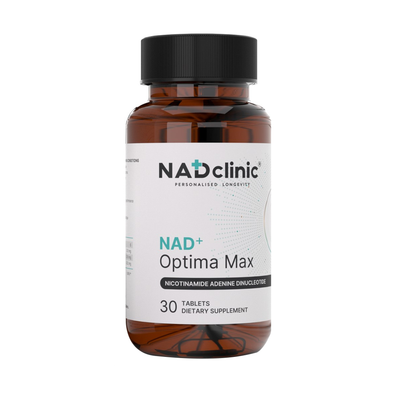วันหัวใจโลก 2564
โรคหลอดเลือดหัวใจ (CVD) ยังคงเป็นสาเหตุการเสียชีวิตอันดับหนึ่งของโลก, ส่งผลให้ 18. 6 ล้านคนเสียชีวิตต่อปี. ไม่มีสาเหตุที่แน่ชัดและมักเกิดจากปัจจัยหลายอย่างร่วมกัน เช่น วิถีชีวิตและการสูบบุหรี่, โรคเบาหวาน, ความดันโลหิตสูงและโรคอ้วน, และแม้กระทั่งมลพิษทางอากาศ. อาจเกิดจากภาวะที่พบได้น้อย เช่น โรคชาคัส และอะไมลอยโดซิสของหัวใจ. ในช่วง 18 เดือนที่ผ่านมา, ผู้ที่เป็นโรค CVD ต้องเผชิญกับแรงกดดันเพิ่มเติมจาก COVID-19, ไวรัสที่ส่งผลกระทบต่อผู้ป่วยโรคหลอดเลือดหัวใจอย่างไม่สมส่วน. เนื่องจากมีความเสี่ยงต่อการติดเชื้อโควิด-19 ในรูปแบบที่รุนแรงมากขึ้น, ประชากรกลุ่มนี้ได้รับการบอกกล่าวว่าพวกเขาอยู่ในภาวะเปราะบาง, มีความเสี่ยงและควรหลบภัยอยู่ในสถานที่, ส่งผลให้เกิดผลเสียหลายประการ เช่น การพลาดนัดพบแพทย์, การขาดการติดต่อกับครอบครัวและเพื่อนฝูงและการออกกำลังกายที่ลดลง. ตามแสงของ วันหัวใจโลก (วันที่ 29 กันยายน) เราคิดว่าเราจะแบ่งปันการวิจัยที่น่าสนใจเกี่ยวกับ NAD+ และผลกระทบต่อโรคหัวใจและความดันโลหิตสูง.การวิจัยเกี่ยวกับ NAD+ และโรคหัวใจ
เพราะ NAD+ และความเชื่อมโยงกับวัยชราและโรคที่เกี่ยวข้องกับอายุ, ทำให้เกิดกระแสการวิจัยใหม่ในสาขาหัวใจและหลอดเลือด, โดยเฉพาะอย่างยิ่งเป็นเป้าหมายการรักษาใหม่สำหรับโรคหัวใจและหลอดเลือดที่เกี่ยวข้องกับภาวะหัวใจหยุดเต้นเฉียบพลัน. หัวใจ, ร่วมกับไตและตับมีระดับ NAD+ สูงที่สุดในบรรดาอวัยวะทั้งหมดและรการวิจัยทางอิเล็กทรอนิกส์ แสดงให้เห็นว่า NAD+ มีส่วนร่วมในกระบวนการสำคัญหลายประการในโรคหลอดเลือดหัวใจ. ตัวอย่างเช่น, NAD+ ปกป้องการเกิดโรคเมตาบอลิกซินโดรม, ภาวะหัวใจล้มเหลว, การบาดเจ็บจากการขาดเลือดและการกลับคืนของเลือด (IR), ภาวะหัวใจเต้นผิดจังหวะและความดันโลหิตสูง. นอกจากนี้, NAD+ สามารถส่งเสริมการแพร่กระจายของเซลล์บุผนังหลอดเลือดและป้องกันโรคหัวใจและหลอดเลือดสมอง. การศึกษาแสดงให้เห็นว่าระดับ NAD+ ในหัวใจลดลงหลังจากได้รับบาดเจ็บจาก IR แต่ระดับ NAD+ ที่เพิ่มขึ้นในหัวใจที่ได้รับความเสียหายมีความจำเป็นต่อการลดขนาดของเนื้อเยื่อตายและการฟื้นตัวจากการบาดเจ็บจาก IR. การเสริมด้วย NAD+ ยังช่วยยับยั้งการเกิดพังผืดหรือการหนาตัวของกล้ามเนื้อหัวใจอีกด้วยการศึกษา NAD+ ในหนู
ในแบบจำลองหนูทางพันธุกรรมของโรคกล้ามเนื้อหัวใจขยาย, การวิจัยพบว่า การเสริม NAD+ ในอาหารช่วยลดภาวะการหดตัวของหัวใจห้องล่างซ้ายและการขยายตัวของห้องหัวใจได้อย่างมีนัยสำคัญ. ผลที่คล้ายกันนี้ยังพบในหนูที่มีภาวะกล้ามเนื้อโตและทำงานผิดปกติอันเนื่องมาจากแรงดันเกินด้วย. ผลการวิจัยเหล่านี้สนับสนุนงานวิจัยก่อนหน้านี้ที่แสดงให้เห็นผลประโยชน์ของการเพิ่มระดับ NAD+ ต่อการไฮเปอร์โทรฟีของหัวใจและการทำงานในรูปแบบของการไฮเปอร์โทรฟีทางพยาธิวิทยาที่เกิดจากสารกระตุ้น, ภาวะความดันเกินเรื้อรัง, และโรคกล้ามเนื้อหัวใจไมโตคอนเดรีย. ดังนั้น, การศึกษานี้สนับสนุนแนวคิดใหม่ในการเพิ่มระดับ NAD+ เป็นกลยุทธ์การรักษาภาวะหัวใจล้มเหลว. แน่นอน, การศึกษาเพิ่มเติมที่เปรียบเทียบแบบจำลองและระยะของภาวะหัวใจล้มเหลว, และท้ายที่สุดจะต้องมีการทดลองกับผู้ป่วยมนุษย์เพื่อทำความเข้าใจเพิ่มเติมเกี่ยวกับวิธีการ อาหารเสริม NAD+ สามารถปรับปรุงผลลัพธ์เกี่ยวกับโรคหัวใจได้.NAD+ และผลกระทบต่อระดับความดันโลหิตสูง
เอ การศึกษาใหม่ พบว่า NAD+ มีคุณสมบัติเลียนแบบการจำกัดแคลอรี่, เสริมสร้างสุขภาพหลอดเลือดแดงและอาจช่วยย้อนกลับภาวะแก่ก่อนวัยของหลอดเลือดหัวใจได้. การศึกษาวิจัยใหม่ยังพบว่าผู้เข้าร่วม 13 รายมีความดันโลหิตสูงหรือความดันโลหิตสูงระยะที่ 1, ความดันโลหิตลดลงประมาณ 10 จุดหลังจากการเสริม NAD+. การลดลงของระดับดังกล่าวอาจส่งผลให้ความเสี่ยงต่อการเกิดอาการหัวใจวายลดลง 25%. ในที่สุด, ผู้เขียนการศึกษาคิดว่าการเสริมอาหารอาจเป็นทางเลือกเพิ่มเติม, ควบคู่ไปกับการเปลี่ยนแปลงด้านโภชนาการและการออกกำลังกายที่แนะนำในปัจจุบันสำหรับผู้ที่มีความดันโลหิตยังไม่สูงพอที่จะต้องใช้ยาแต่ยังคงมีความเสี่ยงต่อการเกิดอาการหัวใจวาย.
แบ่งปัน
Featured products
Discover our most popular items

NADSQx สมาร์ทเพน 1000 มก.
£399.00

ชุดทดสอบ NAD+ ระดับ
£199.00
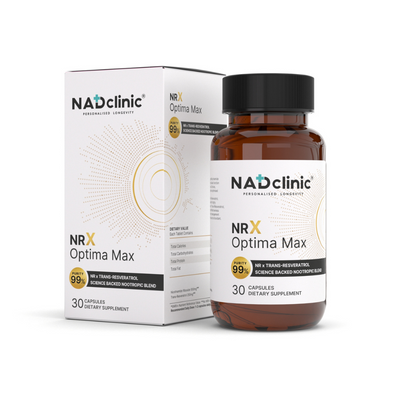
NRX Optima Max
£66.99
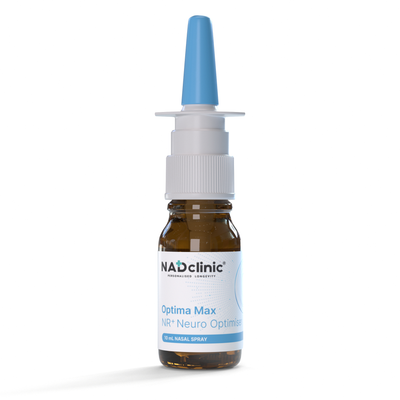
Optima Max - NR 点鼻薬
£34.99
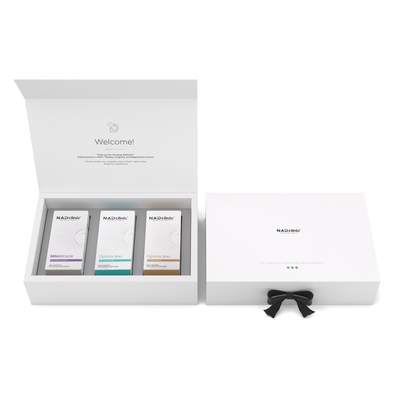
Optima Max - ชุดกล่องของขวัญ
£264.99
อ่านเพิ่มเติม
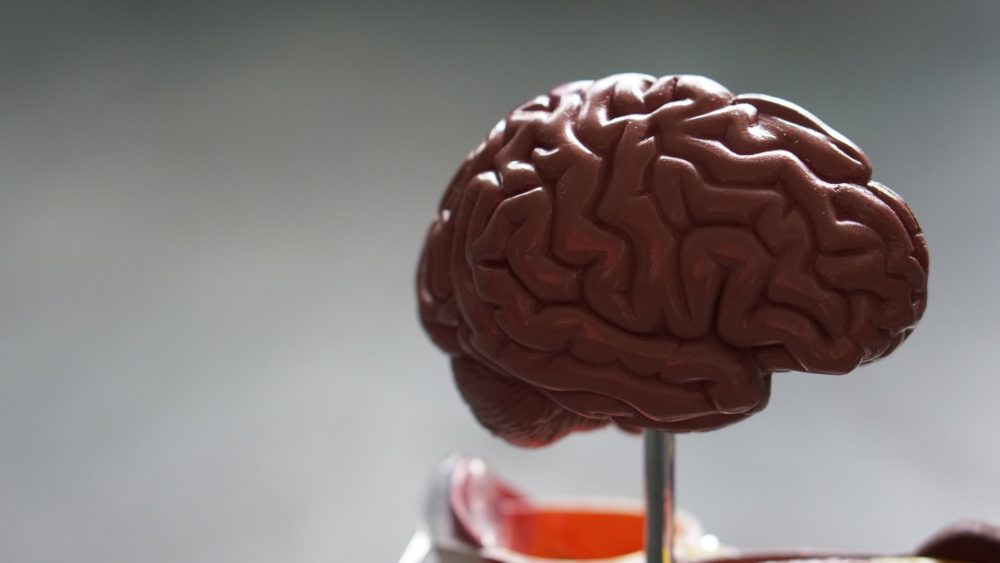
เดือนอัลไซเมอร์โลก: NAD+ อาหารเสริมสามารถช่วยต่อสู้กับอาการของโรคสมองได้อย่างไร
เดือนกันยายนเป็นเดือนอัลไซเมอร์โลก ซึ่งผู้คนจากทั่วทุกมุมโลกจะมารวมตัวกันเพื่อสร้างความตระหนักรู้และท้าทายกับตราบาปที่ยังคงมีอยู่เกี่ยวกับโรคสมองเสื่อม. แคมเปญปีนี้เน้นย้ำสัญญาณเตือนของโรคสมองเสื...
READ MORE HERE
คุณสามารถกินทางของคุณไปสู่ระดับ NAD+ ที่สูงขึ้นได้หรือไม่?
มีอาหารบางชนิดที่อาจช่วยเพิ่มระดับ NAD+ ในร่างกายได้. ซึ่งรวมถึงนมวัว, ปลา, เห็ด, ยีสต์, ผักใบเขียวและธัญพืชไม่ขัดสี. อาหารดิบที่มีวิตามินบี, เหมือนอะโวคาโด, ปลานึ่ง, และถั่วลิสงยังเชื่อกันว่าช่วย...
READ MORE HERE


